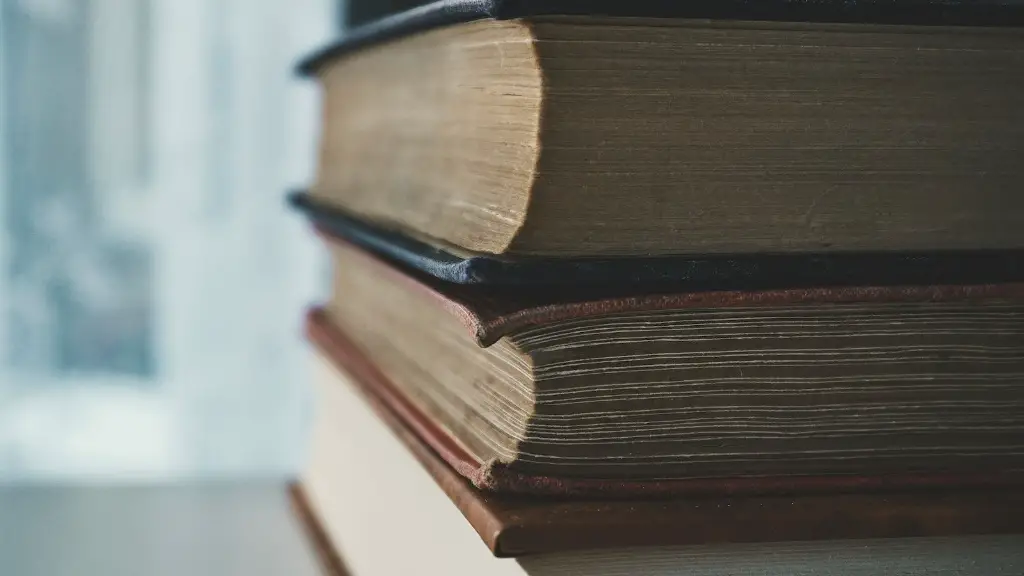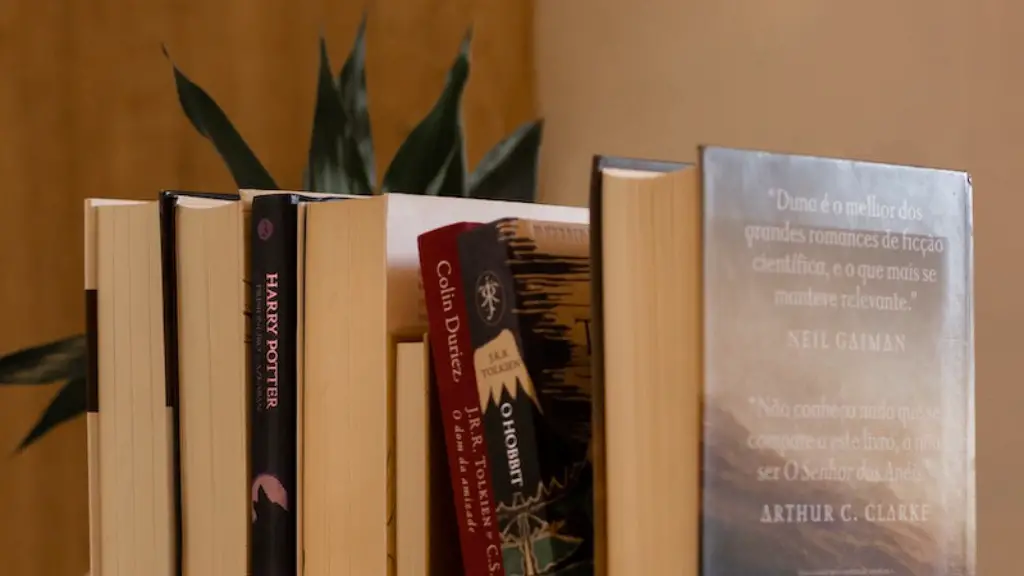Poetry is one of humankind’s oldest forms of expression, conveying deep emotions and thoughts through well-crafted words. Though we know it has the power to uplift, empower, and alter our thoughts, it’s only recently that science has begun to understand more concretely how poetry affects our brains.
Studies have found that when we read or listen to poetry, there is an increase in certain areas of our brain. One study conducted in 2012 by researcher Natalia Demblinska and her colleagues at the Institute of Neuroscience in Alicante, Spain found that when participants in the study read sonnets or odes, the areas of their brain associated with empathy, emotion, and interpersonal understanding lit up.
The study found that the language and structure of poetry directly stimulate the parts of our brain associated with understanding, empathy, and language. It’s no surprise then that poetry is often used in fields like psychotherapy, where it can be used to help people make sense of their emotions and insights. This indicatess that reciting poems or reading them aloud can access parts of the brain that are not touched by other forms of communication.
Poetry alsostimulates the prefrontal cortex, which is the part of the brain associated with insight and problem-solving. This means that reading and understanding poetry can help us think more deeply and make more insightful connections. In addition, the hippocampus, which is the part of the brain associated with memory and learning, is also activated when we read poetry.
The fact that poetry activates different areas of the brain at the same time suggests that it is a highly creative and multi-dimensional way of thinking and expressing ourselves. In fact, some scientists suggest that poetic language may be more powerful than other forms of communication, as it engages multiple areas of the brain simultaneously.
But the power of poetry is not just limited to the physical effects on our brains. Research has also shown that it has psychological benefits as well. Studies suggest that reading or reciting poetry can reduce stress, reduce negative thoughts and feelings, and increase confidence. In addition, studies also show that listening to poetry can help increase concentration and focus.
Thus, it is clear that poetry has a profound effect on the mind and brain. By stimulating various areas of the brain and providing psychological benefits, poetry can be a powerful tool for self-reflection and personal growth. In addition, it can be used to build connection with others, as its language and structure are specifically designed to evoke empathy and understanding.
How does poetry boost creativity?
A key benefit of reading and writing poetry is the boost it gives to creativity. Poetry encourages us to think outside of the box by playing with words, syllables, and sounds, and by constructing metaphors, images, and symbols to convey a message or idea. This can help to bring out our creative side, as well as inspire us to think of solutions to problems in new and innovative ways.
Moreover, reading poetry can help to expand our minds and open us up to different points of view and interpretations. This is because poetry is less linear than other forms of writing and expression, which means that we are encouraged to explore possibilities and think “outside the box.”
In addition, poetry can also be a powerful tool for self-care. It encourages us to explore our own thoughts and emotions, and create a safe space to express our most intimate and profound experiences. This can be incredibly empowering, as it allows us to better understand ourselves and our place in the world.
Finally, poetry can also help to spark conversations, create bonds, and provide creative outlets for people with different backgrounds and experiences. This is because poetry is a form of language that is open to interpretation, and can provide a space for different people to come together, understand one another, and find common ground.
How does poetry influence our emotions?
One of the main benefits of poetry is its ability to influence our emotions and evoke profound feelings. By playing with language, metaphors, and symbols, poetry can evoke images and capture our emotions in a way that words alone cannot.
In addition, poetry is also capable of tapping into deep recesses of our minds and hearts and helping us to find a hidden meaning within ourselves. This can be incredibly powerful and life-altering, as it can help us to uncover our true selves and deepen our understanding of the world around us.
Finally, poetry can also be a source of comfort and solace when we are feeling low and uncertain. Its beauty can act as a beacon of hope, reminding us of the beauty that lies within us even when everything seems to be in darkness. By evoking strong emotions and providing an outlet for our feelings, poetry can be a powerful tool for self-care and healing.
How can poetry make a difference?
Given its power to influence the mind and stir the soul, it is no surprise that poetry has the capacity to make a difference in the world. By raising awareness, providing different perspectives, and educating on a variety of topics, poetry can be a powerful tool for social change.
In addition, poetry can also be used as a medium for connecting people from all walks of life, regardless of age, gender, race, religion, or background. Through its words and imagery, poetry provides a space for people from all different backgrounds to come together, share their stories, and create a more united and compassionate world.
Finally, poetry can also be used to advance knowledge and understanding of different topics and issues. By using its power to evoke emotion, poetry can be used to engage people in meaningful conversations, inspire conversation, and bring attention to important issues that may otherwise be overlooked.
What impact does poetry have on society?
Poetry has the power to influence our thoughts, emotions, and behaviours, making it an incredibly powerful tool for creating social change and impacting society. Studies have shown that poetry can be used to raise awareness and even create behavioural change by influencing our attitude, perceptions and beliefs.
In addition, poetry can also be used to build connection and understanding between people with different backgrounds and perspectives. By providing an outlet for expression and communication, poetry can be used to bring people together, foster understanding, and bridge divides in society.
Finally, poetry can also be used to inspire and empower people. Through its language, images and symbols, poetry can provide insight, comfort and hope, and be a source of empowerment and strength as individuals and as a collective.
How is poetry taught in schools?
Though some may say that poetry is becoming a lost art, it is still taught in many classrooms around the world. In fact, poetry is a very popular subject in elementary, middle, and high schools, known for encouraging students to think creatively and express themselves.
While teaching poetry, teachers often focus on the analysis of poetic elements such as imagery, symbolism, and rhyme. By doing so, they enable students to understand the structure, style, and meaning of a poem, as well as its potential interpretations. Teachers also often encourage students to come up with their own creative writing, be it a poem, a story, or an essay.
In addition, teaching poetry can also have many other benefits, such as improved reading comprehension and vocabulary, improved language and communication skills, and increased cognitive flexibility. Poetry is also a great way to foster connections between students, as they are encouraged to share their ideas and experiences while exploring the nuances of language and expression.
Can poetry be used as a therapeutic tool?
Given the power of poetry to evoke emotion and stimulate the brain, it’s no surprise that it is increasingly being used in psychotherapy and counseling. Often referred to as “poetry therapy”, this approach combines the use of poetry and other expressive arts such as music, visual arts, and drama to help individuals better understand and process their thoughts and feelings.
The process of writing or reciting poetry can help to access the unconscious mind, enhance self-awareness and understanding, and provide clarity and insight. Moreover, the creative and expressive nature of poetry makes it a powerful tool for exploring thoughts, emotions, and experiences in a safe and non-judgmental environment.
In addition, poetry therapy can also provide an outlet for releasing emotions and connecting with others. For example, individuals struggling with depression or anxiety may find it easier to express their thoughts and feelings through poetry than through more traditional methods of communication.
Thus, it is clear that poetry can be an incredibly useful tool for self-exploration, emotional healing, and connecting with others. By providing a safe space for expressing thoughts and feelings, poetry can be a powerful tool for personal growth and understanding.





